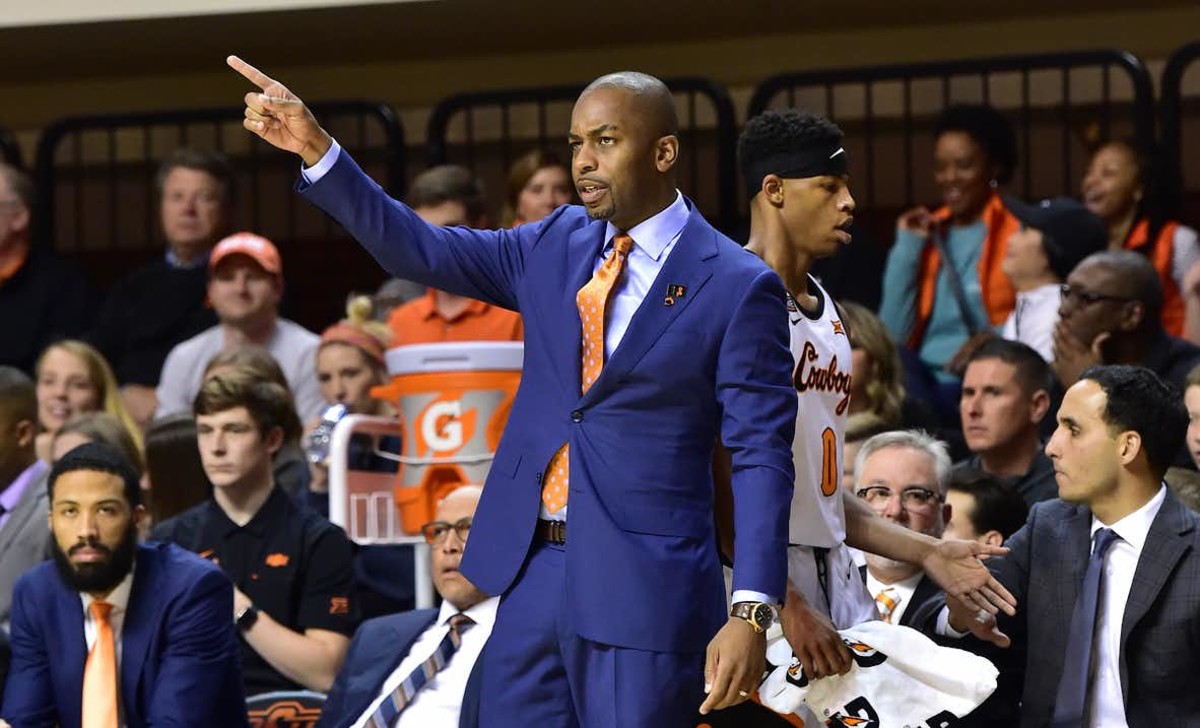Oklahoma State Men’s Basketball Coach Mike Boynton Talks Social Injustice
Of the myriad of emotions Oklahoma State men’s basketball coach Mike Boynton has felt in the aftermath of the police shooting of Jacob Blake in Kenosha, Wis., on August 23, frustration is the most prevalent.
Not just because Blake, a 29-year-old black man, was shot from behind seven times at close range and not just because he was unarmed; Boynton is mostly frustrated because “we’re just not learning.”
RELATED: OSU point guard Cade Cunningham speaks on social injustice
“These things are continuing to happen,” Boynton said. “It many ways it’s very disturbing. These things aren’t isolated to big cities or small towns or black communities or white communities; pretty much everywhere you turn there’s issues. We’re not learning and we’re not listening on all sides of these issues.”
Just three months prior to Blake’s shooting, George Floyd, a black man, was killed by Minneapolis police
on May 25 after being pinned beneath officers, one of whom kneeled on his neck for eight minutes and 46 seconds, as he was detained.

Floyd repeatedly told the officers that he couldn’t breathe. The officer who kneeled, Derek Chauvin, was later fired, arrested and charged with second-degree murder and second-degree manslaughter; the other three officers—Thomas Lane, J. Alexander Kueng and Tou Thao—were charged with aiding and abetting second-degree murder.
RELATED: Pitt coach Jeff Capel 'Passionate' about change to social injustice
Boynton recalled what he referred to as a “traumatizing experience” with police when he was 12 and simply riding a bike in his home borough of Brooklyn when a police car suddenly pulled up on the curb.
Boynton said officers drew their guns, threw him up against a wall and asked for identification.
“I didn’t have ID, I was 12,” Boynton said. “A few minutes later the situation calmed because they got another call that the suspect they were looking for was somewhere else. Those experiences really lay bare the issues; it’s the assumption that I’m gonna be a threat to them.”
To that end, Boynton remains in constant communication with his players about awareness and reminding them that they’re “not immune to this as athletes.”
“A lot of times the perception that they have is being an athlete is gonna protect them from these situations,” Boynton said. “When the reality is they don’t wear their uniforms when they’re driving their cars. We talk about this, what’s the goal? The goal in my mind in an encounter with the police is to get home.
RELATED: Cade Cunningham Happy to Stay Put at OSU
"Education is the key for us; we’ve gotta educate ourselves on financial literacy issues, on how to handle situations with police officers, on being more intentional about what we’re trying to accomplish in our lives; if we can do that through education we’ll give ourselves a great chance to advance all of our social agendas.”
